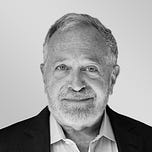Notably, the Inflation Reduction Act didn’t attract a single Republican vote in the Senate. (And at least one Democratic senator — Kyrsten Sinema — made sure its tax provisions wouldn’t raise tax rates on rich individuals.) Why?
We talk a lot about money in politics, but there’s a huge and growing difference between the big money (campaign donations of $1 million or more), most of it pouring into Republican coffers and small money (individual donations of $200 or less), mainly pouring into the Democrats. (Corporations have been giving to both sides, in roughly equal measure.)
The significance of this difference is growing.
With the midterms elections looming, the gap between the two sources is larger than ever. Democrats are far outpacing Republicans in small-dollar donations. The most recent reports (through June 30) show, for example, that:
— In Georgia, incumbent Senator Raphael Warnock has raised $14 million in small donations; Republican senate candidate Herschel Walker has raised only about $8 million in small donations.
— In Florida, Val Demings, the Democratic challenger to Senator Marco Rubio, has raised more than $24 million in small donations; Rubio himself has reported $12.7 million in small donations.
— In Arizona, Democratic Senator Mark Kelly's re-election campaign has raised nearly $23 million from small-dollar donors. His GOP challenger, Blake Masters, less than $2 million from small donors.
But the GOP’s big money donors are making up the difference.
— Billionaire Peter Thiel has so far poured over $25 million into the races of Blake Masters in Arizona and J.D. Vance in Ohio.
— Kenneth C. Griffin, the CEO of giant hedge fund Citadel, is bankrolling Republican super PACs to the tune of nearly $50 million.
— Stephen A. Schwarzman, chairman of giant hedge fund Blackstone, has so far contributed a combined $20 million to the main House and Senate Republican super PAC.
— Banking heir Timothy Mellon (descendant of the robber baron Andrew Mellon) has so far contributed $10 million to the main House GOP super PAC.
— Ditto billionaire Patrick R. Ryan.
— Miriam Adelson (whose husband, Sheldon Adelson, was one of the GOP’s most generous contributors until his death last year) just made her first $5 million donation. The list goes on.
— And, of course, Rupert Murdoch, Charles Koch, et al.
Small donors are ramping up their giving to Democrats because they’re aware of how nuts the Republican Party has become on issues ranging from abortion to democracy. Trump has pulled into the GOP white supremacists, Christian nationalists, QAnon paranoids, xenophobic cultists, antisemites, misogynists, and rightwing militias. Plus a StarWars cantina of grifters, crackpots, and thugs who — as the January 6 attack showed — pose a clear and present danger to American democracy.
Big donors are ramping up their giving to Republicans because they now have so much money that any Democratic-led tax increase on them (or Republican-led tax cut for them) will invariably have large financial consequences. The Inflation Reduction Act reveals just how much damage Democrats could do to the bottom lines of the rich.
Many big donor billionaires (e.g., Peter Thiel) are trying to justify their donations as “libertarian,” but they know damn well the current Republican Party has nothing to do with personal freedom. It’s busy intruding on reproductive rights, pushing book bans in libraries and classrooms, barring young transgender people from playing on certain sports teams or using certain bathrooms, refusing to allow teachers to talk about aspects of American history they don’t want young people to know, and actively suppressing votes. Liberty my foot.
No, the billionaires aren’t libertarian. They want only one thing: more tax cuts.
The extraordinary growth of small donors to Democrats is all about justifiable fears of what Republicans will do with more power. The growth in big dollars to Republicans is all about greed.
What do you think?













Share this post